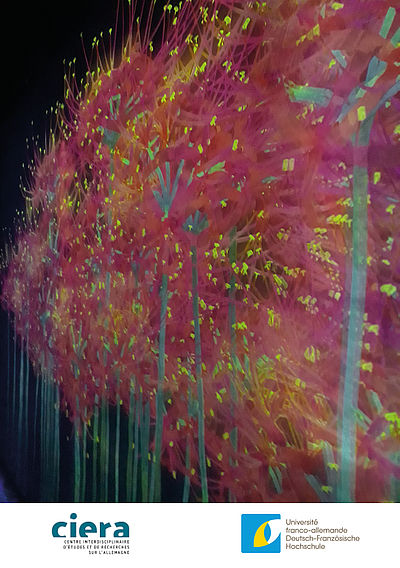Workshop: Le gouvernement européen des mobilités internationales
27. Februar | 09:00
« Le gouvernement européen des mobilités internationales »: premier workshop 27 et 28 février 2020
Comment s’est inventée et mise en place la « libre circulation des travailleurs » en Europe ?
La construction d’un régime libéral en matière de circulation des travailleurs entre certains pays européens - en particulier les pays membres de l’Union européenne – a nécessité un important travail administratif et juridique. Définir les catégories de travailleurs qui peuvent en bénéficier, inventer un système coordonné de droits sociaux attachés aux personnes et non au territoire, construire les institutions responsables d’administrer ces droits et de régir les conditions du séjour : autant de questions posées aux architectes de ce régime migratoire libéral et sur lesquelles nous voulons revenir à travers une collaboration entre historiens, juristes, sociologues et politistes issus de diverses institutions de recherche européennes.
Nous avons alors constitué un groupe de travail interdisciplinaire qui organisera trois rencontres entre février 2020 et mai 2021. Une première journée d’étude, s’appuyant sur le soutien de l’Université franco-allemande et du Centre interdisciplinaire d’études et de recherches sur l’Allemagne, aura lieu au Centre Marc Bloch, le 27 et 28 février et vise à dresser un état de la recherche dans différents champs d’études et d’engager le dialogue entre les membres du groupe de travail.
Une conférence publique en langue anglaise, intitulée « Asylum Administrations in Europe: Transnational Practices between Cooperation and Conflict » sera donnée par Christian Lahusen (Universität Giessen), le 27 février 2020 à 19h.
Contact :
Nikola Tietze: nikola.tietze (at) cmb.hu-berlin.de
Karim Fertikh: karim.fertik (at) unistra.fr
« Das Regieren internationaler Mobilität »: erster Workshop 27. und 28. Februar 2020
Wie wurde die „Arbeitnehmerfreizügigkeit“ erfunden und wie wurde sie umgesetzt?
Das offene Regime, mit dem Freizügigkeit von Arbeitnehmern zwischen bestimmten europäischen Staaten – insbesondere den Mitgliedstaaten der Europäischen Union – geregelt wird, beruht auf einer umfangreichen rechtlichen und administrativen Definitions- und Organisationsarbeit. Die Kategorien der Arbeitnehmer, die von der Freizügigkeit profitieren können, zu bestimmen, die Mitgliedschaft zu den sozialen Sicherungssystemen unabhängig von territorialen Zugehörigkeiten zu denken und den Zugang zu sozialen Rechten zu koordinieren, Institutionen zur Verwaltung und Regelung von sozialer Sicherheit und Aufenthalt aufzubauen… solchen und ähnlichen Problemstellungen und Herausforderungen standen die Architekten des offenen Migrationsregimes gegenüber und wollen wir uns auf der Basis einer interdisziplinären Zusammenarbeit von Soziologen, Geschichts-, Rechts- und Politikwissenschaftlern aus verschiedenen europäischen Forschungseinrichtungen widmen.
Zu diesem Zweck haben wir eine interdisziplinäre Arbeitsgruppe gebildet, die drei Workshops zwischen Februar 2020 und Mai 2021 organisieren wird. Auf der Basis einer Unterstützung durch die Deutsch-Französischen-Hochschule und des Centre interdisciplinaire d’études et de recherches sur l’Allemagne wird der erste Workshop am 27. und 28. Februar 2020 im Centre Marc Bloch stattfinden. Ziel ist es, den Forschungsstand in den verschiedenen Untersuchungsfeldern auszuloten und eine Grundlage für den Austausch zwischen den Mitgliedern der Forschungsgruppe zu schaffen. Das Programm des ersten Workshops baut daher auf deren Forschungsprojekten und -objekten auf.
Am 27. Februar 2020 um 19.00 Uhr wird Cristian Lahusen einen öffentlichen Vortrag mit dem Titel „Asylum Administrations in Europe: Transnational Practices between Cooperation and Conflict“ halten.
Partner
CIERA, DFH
Programm
Governing international mobility
Workshop, February 27 and 28, 2020
Marc Bloch Centre, Georg Simmel Room
(7th floor, Friedrichstr. 191, underground Stadtmitte)
Thursday, February 27, 2020
14h00 - 14h15: Welcome and presentation of the program
14h15 - 15h45: International "Governing Knowledge" - Panel 1
Simon Godard, Daniel Maul, Sebastian Büttner, Hugo Canihac
Discussants: Karim Fertikh, Antoine Vauchez
Governing international labor mobility presupposes both definitions of the worker and the rights governing his or her movement and social and legal protection. Worker mobility questions the territoriality of law and involves the intervention of international organizations. The first panel will focus on these definitions, the actors and the political and economic contexts of these definitions.
15h45 - 16h00: Coffee break
16h00 - 17h30: Managing work mobility in Europe - Panel 2
Anuscheh Farahat, Christoph Krenn, Hadrien Clouet, Ferruccio Ricciardi, Karim Fertikh
Discussants: Hugo Canihac, Nikola Tietze
Administering work mobility in Europe is based on the categorization of workers who have crossed national borders. At the same time, this administration is based on different bodies of law and the combination of one with the other. The 2nd panel discusses the historical construction of different categories of workers, the different rights applied to them and the establishment of administrations to enforce these rights.
17h30 – 18h45: Dinner on site
19h00 – 21h00: Christian Lahusen "Asylum Administrations in Europe: Transnational Practices between Cooperation and Conflict" - Public Lecture
Friday, February 28, 2020
9h30 – 11h00 : The instruments of public action confronted with the social realities of
work mobility - Panel 3
Olivier Giraud, Sophie Iffrig, Hannes Käckmeister, Vincent Gengnagel
Discussants: Hadrien Clouet, Nikola Tietze
The social realities of international labor mobility confront public action at the national and local levels with the limits of its established instruments and lead to conflicts over its cost. Access to social rights and the financing of public action instruments will be the focus of the 3rd panel.
11h00 - 11h15: coffee break
11h15 – 12h30: summary
12h30 - 13h30: lunch on site
13h30 – 15h00: discussion on the themes of the next two workshops and on the objective
of the working group
